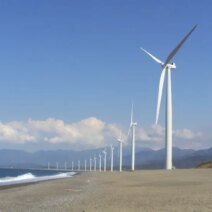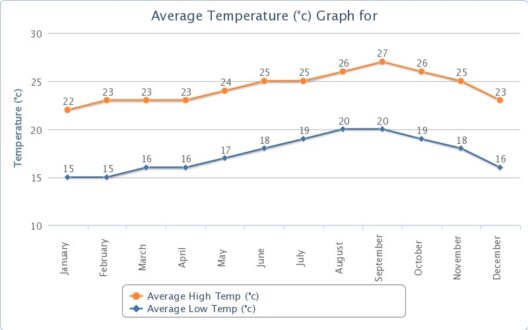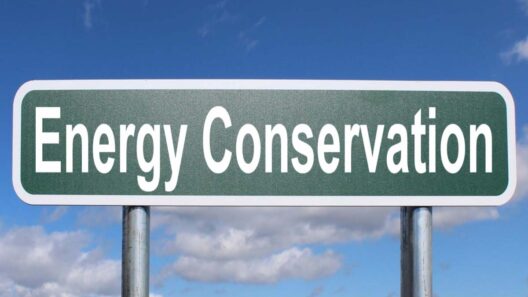Energy conservation plays a pivotal role in mitigating climate change, primarily by reducing our carbon footprint. Have you ever pondered how the small tweaks in our daily energy consumption can collectively make a substantial impact? It’s an intriguing question that points towards a challenge; can we truly effectuate meaningful change, given our entrenched habits and societal norms? Let’s delve into how energy conservation not only enhances efficiency but also catalyzes a reduction in carbon emissions.
To commence our exploration, it is essential to understand the concept of a carbon footprint. This term encapsulates the total amount of greenhouse gases, particularly carbon dioxide, that are emitted directly or indirectly by individual activities or industrial processes. Energy production and consumption are among the most significant contributors to these emissions. From fossil fuel combustion in electricity generation to the gas consumed for heating our homes, the reliance on non-renewable resources lays the groundwork for our carbon footprint.
One of the most effective strategies for reducing our carbon emissions is through energy conservation. This involves using less energy by changing habits, enhancing efficiency, and opting for sustainable alternatives. For example, consider the simple act of turning off lights when leaving a room or switching to energy-efficient appliances. Each small action not only saves energy but also reduces the demand for electricity generated from fossil fuels. Over time, these minor adjustments can lead to a remarkable decline in total emissions.
Now, let’s delve into the multifaceted advantages that energy conservation brings to the table. At the forefront, energy conservation directly correlates with decreased energy demand, which can lead to lower carbon emissions. By utilizing energy-efficient appliances, we are effectively minimizing the amount of energy required for our everyday tasks. Energy-efficient technologies, such as LED lighting and Energy Star-rated appliances, consume substantially less electricity than their conventional counterparts. When less energy is demanded, fewer fossil fuel power plants are triggered to meet that demand, ultimately leading to a decrease in carbon emissions.
Moreover, energy conservation fosters economic savings. Households and businesses that adopt energy-efficient practices experience a reduction in energy bills, which can accumulate into significant financial relief over time. These savings can be repurposed towards other sustainable endeavors or investments, thereby creating a positive feedback loop. Spending less on energy enables more funds to be allocated towards renewable energy sources or improvements in energy infrastructure, promoting a more sustainable environment.
Furthermore, energy conservation plays a crucial role in enhancing national energy security. By reducing dependence on imported fossil fuels, countries can foster a more autonomous energy strategy. Nations that embrace energy conservation are better positioned to shift towards renewable sources like solar, wind, and hydropower. This transition could play a monumental part in creating a comprehensive energy policy that actively fights against climate change.
To illustrate, consider the impact of transportation—a significant contributor to greenhouse gas emissions. Implementing energy conservation strategies within this sector can yield a considerable reduction in our carbon footprint. For instance, using public transportation, carpooling, cycling, or walking not only conserves energy but also diminishes the number of vehicles on the road. Each car off the road translates to fewer emissions and a healthier atmosphere. Electric and hybrid vehicles further enhance this endeavor, promoting efficiency and lowering reliance on fossil fuels.
Moreover, we must consider the role of insulation and temperature regulation in homes and buildings. By insulating our living spaces competently and optimizing heating and cooling systems, we can minimize energy consumption significantly. Proper insulation reduces the amount of energy required to maintain a comfortable temperature, ensuring that our reliance on energy-intensive heating or cooling systems diminishes. Furthermore, employing programmable thermostats allows for automatic adjustments in energy use based on when people are home or away, leading to heightened energy efficiency.
However, despite the clear benefits and potential savings, the task of altering deeply ingrained habits can be daunting. How do we motivate ourselves and others to take the leap into energy conservation? Engaging in community challenges can be an effective method of fostering a culture of sustainability. For instance, organizing local competitions promoting energy efficiency can rally communities around shared goals, encouraging participants to adopt more sustainable practices. Imagine a neighborhood contest where participants strive to decrease their energy consumption by a certain percentage. Such initiatives not only spark interest but also build camaraderie among community members, creating a solid foundation for collective action against climate change.
Moreover, education plays an integral role. Utilizing workshops, social media campaigns, and local programs to bolster awareness about the importance of energy conservation can mobilize significant change. By illustrating the tangible benefits, both environmentally and economically, individuals may be more inclined to embrace new habits and technologies that support energy conservation.
In addition, collaborations with businesses can lead to a broader commitment to energy efficiency. Encouraging companies to adopt green practices not only enhances their corporate responsibility but also positions them as leaders in sustainability. As businesses increasingly recognize the importance of reducing their carbon footprints, the momentum towards energy conservation can gain exponential traction—transforming a singular effort into a widespread movement.
In conclusion, energy conservation stands as a monumental strategy in the fight against climate change. Through small, conscious choices and community engagement, we can collectively diminish our carbon footprints while fostering economic savings and enhancing energy security. The challenge lies in convincing ourselves and others to embrace this transformative journey. So, are you ready to take on the challenge of energy conservation? Every effort counts, and together, we can pave the way towards a sustainable future.








